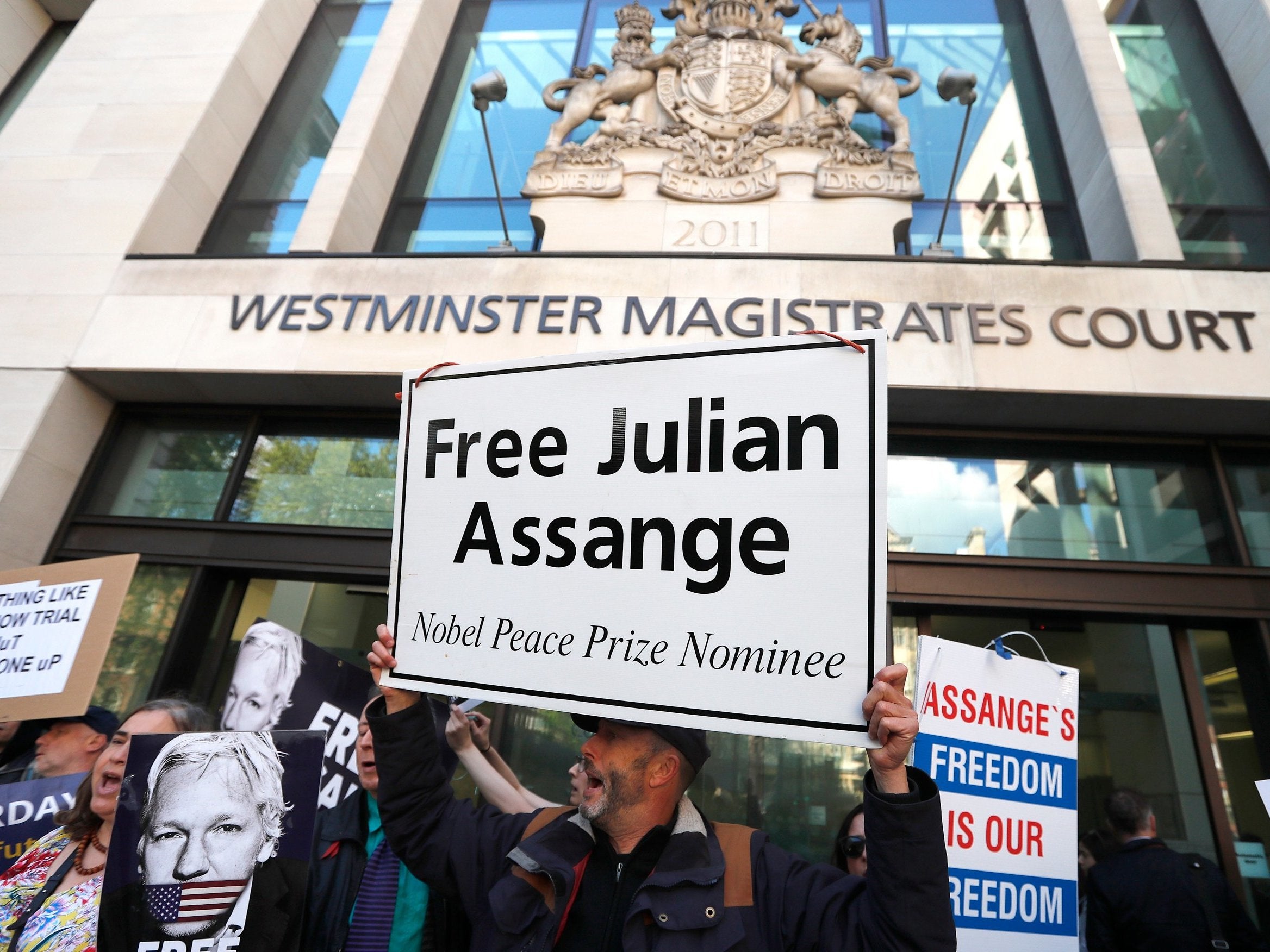Julian Assange: WikiLeaks founder given disproportionate sentence for ‘minor’ crime, UN legal experts claim
WikiLeaks founder's treatment ‘appears to contravene the principles of necessity and proportionality’
Julian Assange was given a “disproportionate” sentence for a bail violation, the United Nations has said as it accused British authorities of breaching his human rights.
The WikiLeaks founder was handed a 50-week sentence earlier this week and is being held at Belmarsh Prison in southeast London. He is fighting an extradition request made by the US over an alleged hacking conspiracy.
The UN Working Group on Arbitrary Detention said it was deeply concerned about the “disproportionate” sentence and claimed that violating bail was only “a minor violation”.
“The working group is further concerned that Mr Assange has been detained since 11 April 2019 in Belmarsh Prison, a high-security prison, as if he were convicted for a serious criminal offence,” it said.
“This treatment appears to contravene the principles of necessity and proportionality envisaged by the human rights standards.”
The panel added: “It is worth recalling that the detention and the subsequent bail of Mr Assange in the UK were connected to preliminary investigations initiated in 2010 by a prosecutor in Sweden. It is equally worth noting that that prosecutor did not press any charges against Mr Assange and that, in 2017, after interviewing him in the Ecuadorian embassy in London, she discontinued investigations and brought an end to the case.”
The same panel of legal experts previously stated that Assange was arbitrarily detained in the Ecuadorian embassy and should have had his liberty restored.
Mr Assange lived inside the embassy for almost seven years before being dragged out by police officers last month.

WikiLeaks has said Assange is now living in “appalling” conditions at the prison, spending 23 hours a day in his cell.
The activist told Westminster Magistrates’ Court that he does not consent to being extradited to the US.
Speaking via video link from Belmarsh prison at a 10-minute hearing, Assange said: “I do not wish to surrender myself for extradition for doing journalism that has won many awards and protected many people.”
US authorities have charged him with conspiracy to commit computer intrusion which carries a maximum penalty of five years.
Ben Brandon, the lawyer representing the US at the Westminster Magistrates’ Court hearing, said there were computer room chats showing real-time discussions between Chelsea Manning and Assange over cracking a password to gain access to classified US documents and the public release of the information.
“The charge relates to one of the largest compromises of classified information in the history of the United States,” Mr Brandon said.
Join our commenting forum
Join thought-provoking conversations, follow other Independent readers and see their replies
Comments
Bookmark popover
Removed from bookmarks